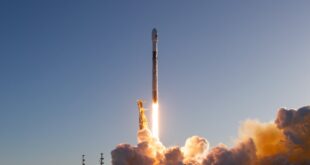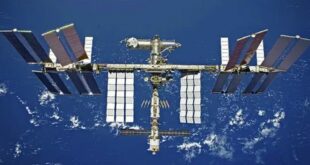![]() Paris, 25 October 2020. – SpaceX completed its 100th successful Falcon launch since Falcon 1’s first flight in 2008, the company announced.
Paris, 25 October 2020. – SpaceX completed its 100th successful Falcon launch since Falcon 1’s first flight in 2008, the company announced.
SpaceX’s Falcon 9 rocket launched another 60 Starlink satellites to orbit on Saturday from Space Launch Complex 40 at Cape Canaveral Air Force Station in Florida, SpaceX said. “The Starlink satellites deployed approximately 1 hour and 3 minutes after liftoff.”
“Of its now 100 successful flights of Falcon rockets, SpaceX has landed a Falcon first stage rocket booster 63 times and re-flown boosters 45 times,” SpaceX said.
“SpaceX’s accomplishments with flight-proven rockets and spacecraft have allowed us to further advance the fleet’s reliability and reusability, as well as inform the development of Starship — SpaceX’s next-generation fully and rapidly reusable super heavy lift transportation system,” SpaceX said. “Starship’s capability of full and rapid reuse will lower the cost of spaceflight to help humanity return to the Moon, travel to Mars, and ultimately become multi-planetary.”
SpaceX has now launched 895 Starlink satellites, according to industry records, of which 55 were unusable. The company recently faced questions about how to handle space debris.
“Starlink is on the leading edge of on-orbit debris mitigation, meeting or exceeding all regulatory and industry standards,” SpaceX says on its Starlink website. “At end of life, the satellites will utilize their on-board propulsion system to deorbit over the course of a few months. In the unlikely event the propulsion system becomes inoperable, the satellites will burn up in Earth’s atmosphere within 1-5 years, significantly less than the hundreds or thousands of years required at higher altitudes.”
 SpaceWatch.Global An independent perspective on space
SpaceWatch.Global An independent perspective on space




